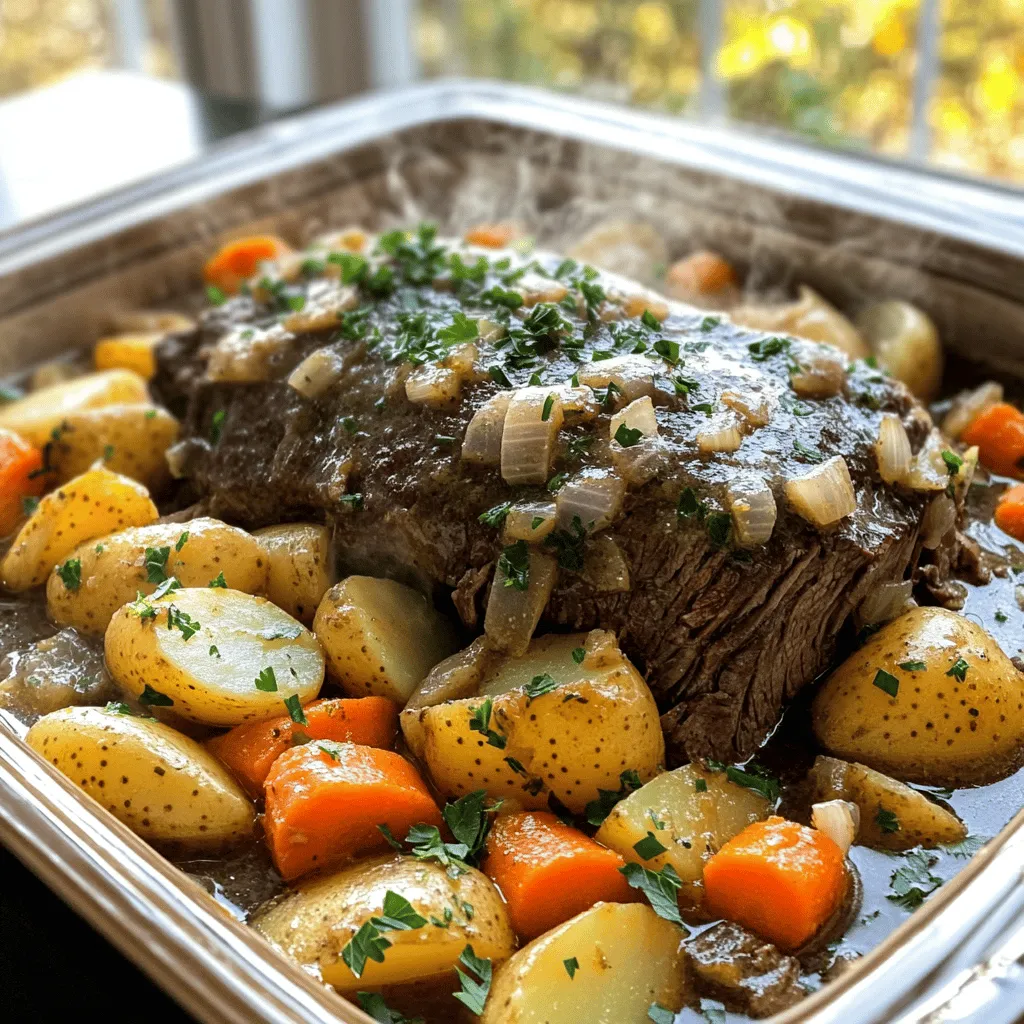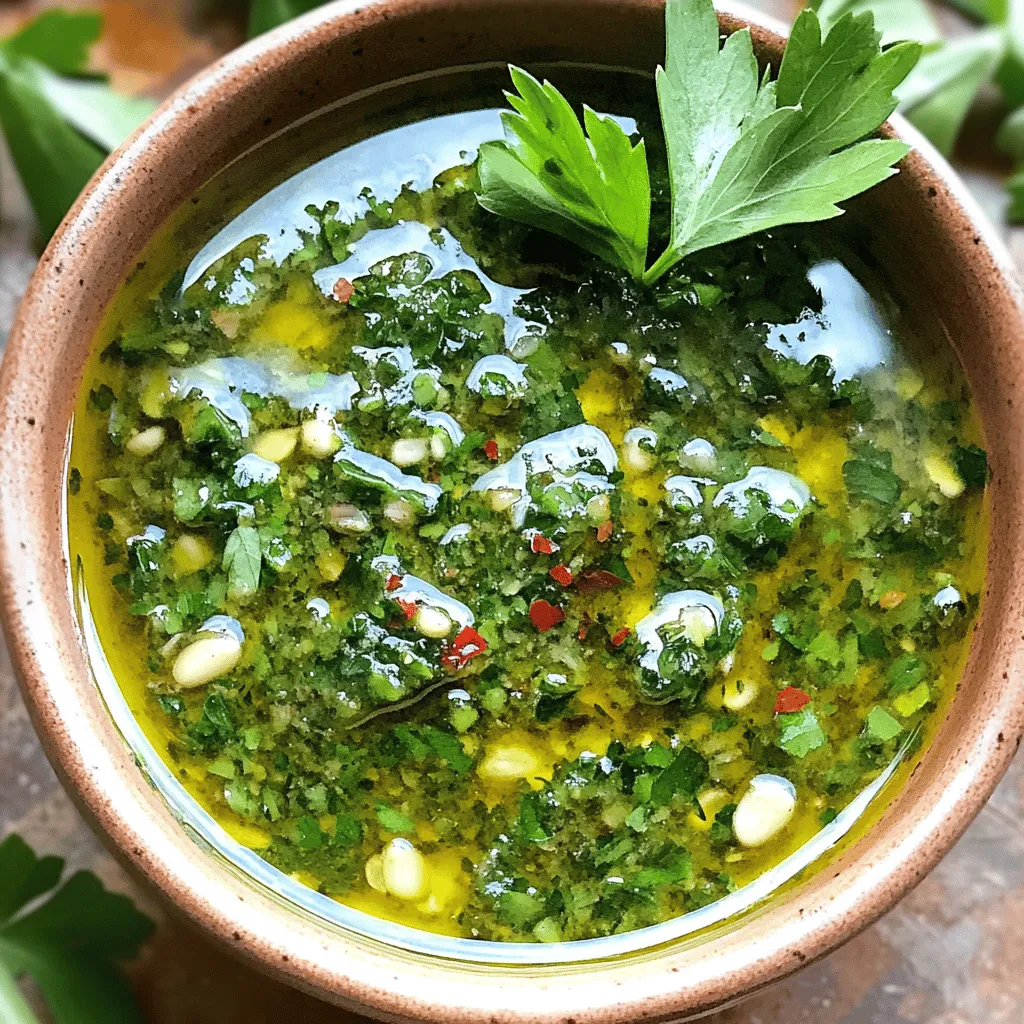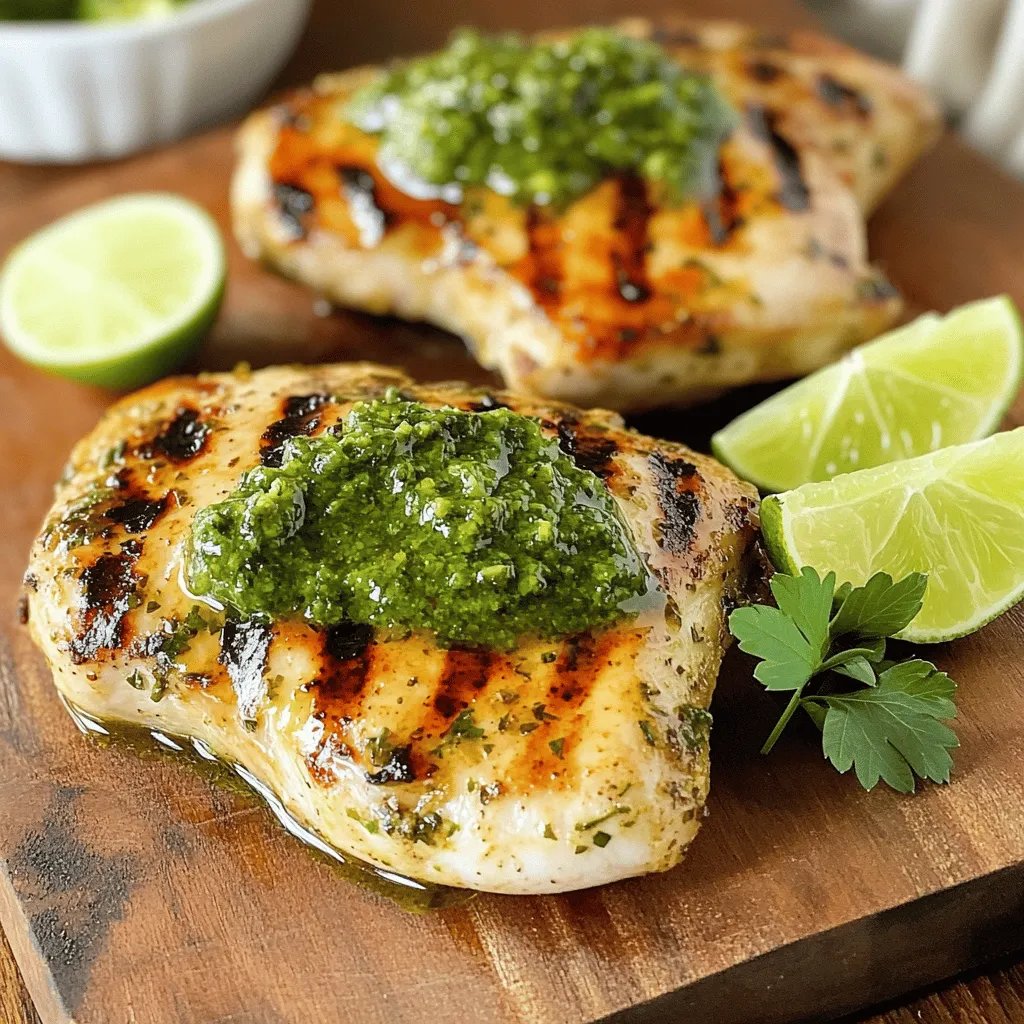Introduction
When it comes to impressive meals that elevate any dining experience, few dishes can compete with the delectable combination of a perfectly seared ribeye steak paired with creamy garlic shrimp. This recipe encapsulates indulgence, making it an ideal choice for special occasions, romantic dinners, or simply a cozy night in. The rich flavors of the steak beautifully complement the succulent shrimp, creating a harmonious blend that tantalizes the taste buds.
The appeal of this dish lies not only in its sumptuous flavor profile but also in its visual presentation. The deep, caramelized crust of the steak contrasts beautifully with the creamy, garlic-infused shrimp, making it a feast for both the eyes and the palate. Whether you are celebrating an anniversary, hosting a dinner party, or treating yourself to a gourmet meal at home, this steak and shrimp combination is sure to impress.
Understanding the Ingredients
Key Ingredients
To create a truly memorable steak and creamy garlic shrimp, the quality of your ingredients is paramount. Here’s a closer look at the key components that will elevate your dish:
– Ribeye Steak: Renowned for its rich marbling and tender texture, ribeye steak is the star of this dish. The fat content not only adds flavor but also ensures a juicy steak when cooked correctly.
– Fresh Shrimp: The shrimp in this recipe should ideally be fresh for the best taste and texture. While frozen shrimp can be used, opting for fresh will elevate the overall quality of the dish.
– Garlic: Fresh garlic cloves are essential for infusing the shrimp with flavor. Garlic complements the richness of the steak and adds a fragrant aroma to the dish.
– Heavy Cream: This is the key ingredient for creating the creamy sauce that envelops the shrimp, lending a luscious texture and balancing the savory flavors.
– Butter: Used for cooking the shrimp, butter adds richness and enhances the overall flavor profile of the dish.
– Seasonings: Simple seasonings such as salt, pepper, and herbs (like parsley or thyme) can elevate the dish without overpowering the natural flavors of the steak and shrimp.
Importance of Choosing High-Quality Ribeye Steaks
Selecting the right cut of meat is crucial for achieving the perfect steak. Ribeye steaks are well-known for their marbling, which contributes to their tenderness and flavor. When choosing ribeye steaks, look for cuts with a good amount of intramuscular fat and a deep red color. Freshness is key, so buy from a reputable butcher or grocery store that can provide high-quality beef.
Benefits of Using Fresh Shrimp and How to Select Them
When it comes to shrimp, freshness is non-negotiable. Fresh shrimp should have a mild ocean scent and firm, translucent shells. Avoid shrimp that has a strong fishy odor or appears dull. If purchasing frozen shrimp, look for those that are flash-frozen shortly after being caught, as this helps preserve their flavor and texture. Additionally, consider the size of the shrimp; large shrimp are often more impressive for presentation and yield a satisfying bite.
Role of Seasonings and Aromatics in Enhancing Flavors
The right seasonings and aromatics play a pivotal role in bringing out the best in your ribeye steak and shrimp. A simple seasoning of salt and freshly cracked black pepper is often all that is needed to allow the natural flavors to shine through. Fresh herbs, such as parsley or chives, can be used to garnish the dish, adding a pop of color and freshness. Garlic, of course, is a crucial aromatic that not only flavors the shrimp but also adds a delightful fragrance to the overall dish.
Preparation Steps for the Perfect Ribeye Steak
Achieving the perfect ribeye steak requires attention to detail and a few essential preparation steps. Here’s how to ensure your steak is cooked to perfection:
Importance of Bringing Steaks to Room Temperature
Before cooking, it is essential to allow your ribeye steak to come to room temperature. This process typically takes about 30-60 minutes and ensures even cooking throughout. A cold steak placed directly onto a hot grill or skillet can lead to uneven cooking, resulting in a steak that is overcooked on the outside and undercooked in the center.
Detailed Seasoning Techniques and Tips for Optimal Flavor
Seasoning your steak is a vital step that can significantly enhance its flavor. Start by patting the steak dry with paper towels to ensure a nice sear. Generously season both sides of the ribeye with salt and freshly ground black pepper. For an added flavor boost, you can also rub the steak with minced garlic or sprinkle it with your favorite steak seasoning blend. Allow the seasoned steak to rest for a few minutes to let the flavors penetrate the meat.
Explanation of Cooking Methods: Skillet vs. Grill
There are two popular methods for cooking ribeye steak: skillet cooking and grilling. Both methods yield delicious results, but they each have their unique advantages.
– Skillet Cooking: Using a cast-iron skillet is an excellent way to achieve a beautiful crust on your steak. Preheat the skillet over medium-high heat, adding a tablespoon of oil with a high smoke point, such as canola or avocado oil. Once the oil is shimmering, place the steak in the skillet and avoid moving it for the first few minutes to allow for proper browning.
– Grilling: Grilling is a classic method that imparts a smoky flavor to the steak. Preheat your grill to high heat and oil the grates to prevent sticking. Place the steak directly over the heat source and grill for a few minutes on each side, adjusting the heat as necessary to prevent flare-ups.
Timing and Temperature for Achieving Desired Doneness
The key to a perfect ribeye steak is monitoring the cooking time and internal temperature. For medium-rare, aim for an internal temperature of 130-135°F (54-57°C). Use a meat thermometer to check the temperature, inserting it into the thickest part of the steak. As a general guideline, cook the steak for about 4-6 minutes per side, depending on thickness and cooking method.
Importance of Resting the Steak Post-Cooking for Juiciness
Once your ribeye steak is cooked to your desired doneness, remove it from the heat source and let it rest for at least 5-10 minutes. Resting allows the juices to redistribute throughout the meat, resulting in a more tender and juicy steak. Cover the steak loosely with aluminum foil to keep it warm while it rests.
Crafting the Creamy Garlic Shrimp
While the steak is resting, it’s time to prepare the creamy garlic shrimp that will accompany it. This step is relatively straightforward but requires attention to ensure the shrimp are cooked perfectly and the sauce is rich and flavorful.
Sautéing the Garlic
Begin by melting butter in a skillet over medium heat. Once the butter is bubbling, add minced garlic and sauté for about 30 seconds, or until fragrant. Be careful not to burn the garlic, as it can turn bitter.
Cooking the Shrimp
Add the fresh shrimp to the skillet, ensuring they are in a single layer for even cooking. Cook the shrimp for 2-3 minutes on one side until they turn pink and opaque. Avoid overcrowding the pan; if you have a large quantity, cook the shrimp in batches.
Creating the Creamy Sauce
Once the shrimp are cooked through, reduce the heat to low and slowly pour in heavy cream, stirring to combine. Allow the sauce to simmer for a few minutes until it thickens slightly. Season with salt, pepper, and a squeeze of lemon juice to brighten the flavors. Fresh parsley can be added for an aromatic finish.
Combining the Steak and Shrimp
Once both components are ready, slice the ribeye steak against the grain and arrange it on a plate. Spoon the creamy garlic shrimp over the steak, allowing the rich sauce to cascade down. This dish not only looks stunning but also promises an explosion of flavors with each bite.
As you prepare this decadent steak with creamy garlic shrimp, you are not just cooking a meal; you are creating a culinary experience that will be remembered long after the last bite. Enjoy the process and savor the delightful flavors that come together in this extraordinary dish.

Step-by-Step Guide to Preparing the Shrimp
To create the creamy garlic shrimp that beautifully complements your decadent steak, start by gathering your ingredients. You will need:
– 1 pound of large shrimp, peeled and deveined
– 4 cloves of garlic, minced
– 1 cup heavy cream
– 1 cup chicken or seafood broth
– 2 tablespoons butter
– Salt and pepper to taste
– Fresh parsley, chopped for garnish
– Lemon wedges for serving
Cooking the Shrimp:
1. Prep the Shrimp: Begin by ensuring your shrimp are properly thawed if previously frozen. Pat them dry with paper towels to remove excess moisture, which will help them sear instead of steam.
2. Sauté the Garlic: In a large skillet, melt 2 tablespoons of butter over medium heat. Once the butter is melted and bubbling, add the minced garlic. Sauté for about 30 seconds, stirring continuously to prevent burning. The goal is to soften the garlic and release its aroma without letting it turn bitter.
3. Add the Shrimp: Increase the heat to medium-high, then add the shrimp to the skillet. Season with salt and pepper. Cook the shrimp for 2-3 minutes on one side until they turn pink and opaque, then flip them over and cook for another 2-3 minutes. Be careful not to overcook the shrimp; they should be tender and juicy.
4. Create the Sauce: Once the shrimp are fully cooked, reduce the heat to medium. Pour in the chicken or seafood broth, scraping the bottom of the pan to deglaze and incorporate any flavorful bits. Let it simmer for about 2 minutes to reduce slightly.
5. Incorporate the Cream: Slowly add the heavy cream while stirring constantly. Bring the mixture to a gentle simmer, allowing the sauce to thicken for about 3-5 minutes. Adjust the seasoning with additional salt and pepper as needed.
Techniques for Sautéing Garlic Without Burning
Sautéing garlic is a crucial skill in cooking, particularly for dishes like creamy garlic shrimp. Here are some tips to ensure you achieve the perfect sauté:
– Low and Slow: Start with a lower heat to give the garlic time to release its flavors without burning. If you notice signs of browning, reduce the heat immediately.
– Use Fresh Garlic: Fresh garlic has a more robust flavor and is less likely to burn quickly compared to garlic that has been stored for a long time.
– Timing: Always add garlic to the pan before other ingredients, as it requires less cooking time than most vegetables or proteins. Monitor it closely and be ready to add your next ingredient once it becomes fragrant.
The Balance of Flavors: Integrating Cream and Broth
Integrating cream and broth is key to achieving a well-balanced sauce. Here’s how to do it effectively:
– Flavor Layering: Begin with the broth to build the base flavor, and let it simmer to concentrate its taste. When you add the heavy cream, ensure it’s at room temperature to prevent curdling and promote a smooth texture.
– Adjusting Consistency: If your sauce is too thick, add a splash of broth to thin it out. Conversely, if it’s too thin, allow it to simmer longer to reduce and thicken.
– Seasoning: Taste your sauce before serving. Depending on your preference, you may want to incorporate additional herbs or spices, such as paprika or cayenne for a hint of heat.
Tips for Achieving the Perfect Sauce Consistency
A creamy sauce should be rich but pourable. Here are some tips to help you achieve that ideal consistency:
1. Temperature Control: Keep the heat at medium to allow for gentle bubbling, which helps evaporate excess liquid without scorching the sauce.
2. Constant Stirring: Stirring the sauce while it simmers prevents it from sticking to the bottom of the pan, ensuring an even consistency.
3. Thickening Agents: If you desire an even thicker sauce, consider adding a cornstarch slurry (1 tablespoon of cornstarch mixed with 2 tablespoons of cold water) during the simmering process.
The Role of Parsley and Lemon Juice in Brightening the Dish
Fresh parsley and lemon juice play pivotal roles in enhancing the overall flavor profile of your steak and creamy garlic shrimp:
– Parsley: This herb adds a fresh, vibrant note that balances the richness of the cream and butter. Tossing in chopped parsley right before serving not only enhances flavor but also adds visual appeal.
– Lemon Juice: A splash of fresh lemon juice elevates the dish with acidity, cutting through the creaminess and brightening the overall taste. Add it just before serving to maintain its freshness.
Combining Flavors: Serving Suggestions
Best Practices for Plating the Dish:
– Use a large white plate to highlight the colors of your steak and shrimp.
– Start by placing a bed of creamy garlic shrimp in the center, then layer the steak on top or beside it.
– Drizzle some of the sauce over the steak and shrimp for a glossy finish.
– Garnish with freshly chopped parsley and lemon wedges for a pop of color and freshness.
Suggestions for Side Dishes That Complement the Steak and Shrimp:
– Garlic Mashed Potatoes: Creamy mashed potatoes infused with garlic are a classic pairing that complements the dish’s flavors.
– Grilled Asparagus or Broccoli: Lightly charred vegetables add a crunchy texture and a hint of bitterness that balances the dish.
– Wild Rice Pilaf: The nuttiness of wild rice enhances the meal’s complexity, and it absorbs the delicious sauce beautifully.
Wine Pairings That Enhance the Dining Experience:
– Chardonnay: A full-bodied Chardonnay with buttery notes works well with the richness of the shrimp and cream.
– Pinot Noir: If you prefer red, a light-bodied Pinot Noir can complement the steak without overpowering the delicate flavors of the shrimp.
– Sauvignon Blanc: A crisp Sauvignon Blanc pairs perfectly with the brightness of the lemon and parsley, enhancing the dish’s freshness.
Nutritional Information
Overview of the Nutritional Benefits of the Ingredients Used:
– Shrimp: A great source of protein and low in calories, shrimp also provides essential nutrients like selenium and vitamin B12.
– Heavy Cream: While rich in fats, heavy cream is a source of calcium and can be enjoyed in moderation.
– Parsley: Packed with vitamins A, C, and K, parsley is a nutritious herb that also adds flavor without significant calories.
Discussion on the Balance of Proteins and Sauces in the Recipe:
This recipe offers a delightful balance of protein from the shrimp and steak, combined with a rich, creamy sauce that enhances flavor without overwhelming. The combination makes for a satisfying meal that can fit into a balanced diet when enjoyed thoughtfully.
Considerations for Dietary Restrictions or Modifications:
– Gluten-Free Options: This recipe is naturally gluten-free, making it a great choice for those with gluten sensitivities.
– Dairy-Free Alternatives: For a dairy-free version, consider substituting heavy cream with coconut cream or a dairy-free cream alternative, adjusting seasoning to taste.
Conclusion
The decadent steak with creamy garlic shrimp is not just a meal; it’s an experience that combines rich flavors and textures, perfect for special occasions or a delightful home-cooked dinner. The process of preparing this dish, from sautéing the shrimp to crafting the creamy sauce, allows you to hone your culinary skills while indulging in a gourmet experience.
Encouragement to try this recipe at home is not just about enjoying a meal; it’s about the joy of cooking and the pleasure of sharing delicious food with loved ones. There’s something uniquely rewarding about creating a beautiful dish that brings people together. So gather your ingredients, follow the steps, and enjoy the rewarding experience of making and savoring this decadent steak with creamy garlic shrimp.




